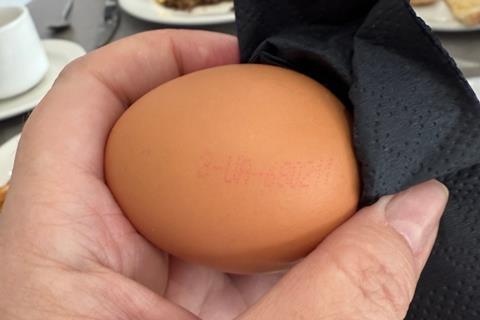
Continued tariff-free access to the UK for Ukrainian eggs and poultry products could have “significant and damaging consequences for domestic producers”, the National Farmers’ Union has warned.
A two-year deal allowing full market access to Ukrainian producers is due to expire in March 2026 – representing the sole exception of a wider free trade agreement with Ukraine, first announced in May 2022 in the wake of the Russian invasion of the country, which has since been extended until March 2029.
But with imports of Ukrainian eggs and poultry to the UK soaring, the NFU today said it had expressed “extreme concern to government that if the current tariff suspension mechanisms are extended, and volumes are not limited to an appropriate level, this could lead to significant and damaging consequences for domestic producers”.
It is calling for further concessions to UK producers after next March, including limits on import volumes.
The rise in Ukrainian imports
Imports of eggs from Ukraine stood at 11 kilotonnes between January and September, with poultrymeat imports at 46.6 kilotonnes. This represented a 27,400% increase for eggs and a 95% jump for poultrymeat year on year, according to data from the Department for Business and Trade.
Such increases “showed that Ukraine and its businesses are benefiting from the tariff liberalisation”, the DBT added.
And as The Grocer reported in June, egg imports in particular look set to rise even further. Two major Ukrainian suppliers – Avangardco and Ovostar Union – were said to be eyeing a big push into the UK, following a hike in import tariffs by the EU last year over concerns cheaper Ukrainian product was flooding the bloc.
But the impact on producer confidence from the increase in Ukrainian imports was “already showing”, warned the NFU, and was having a “substantial knock-on effect on investment, growth and ultimately sector resilience”.
Given the EU’s restrictions, the farming union said it was “concerned there is potential for further displaced product to be exported into the UK market”.
The difference in animal welfare standards between the UK and Ukraine – where battery cages banned in the UK are still in widespread use – combined with Ukraine’s lower input and compliance costs “leaves British farmers unable to compete”, while also “undermining British production and providing an unlevel playing field which further impacts producer confidence”, the NFU warned.
Read more: Food Inflation Gateway to assess impact of regulation on prices
The union also highlighted how the UK government was “already helping Ukraine in many ways”, with direct support for the poultry sector provided in July 2025 with a British International Investment loan of €30m to MHP – Ukraine’s largest poultry and processed meat producer – which told The Grocer it was hoping to make big inroads in the UK market in June 2023.
Although “supportive of the government’s desire to aid Ukraine during a deeply tragic time of war”, the dramatically increased scale of imports, combined with the volatile geopolitical environment in Europe, “means we cannot support a continuation of the current unlimited tariff suspensions for Ukrainian poultry meat and egg imports”, the NFU said.
“Extensive evidence” submitted to prime minister Keir Starmer and government departments by the NFU have called on the government to “fully recognise the sensitivities of [domestic egg and poultry producers] in any decision on tariff easements beyond March 2026”.
Any market access should also be “appropriately volume-limited with annual reviews”, it urged, and should be “conditional upon the imported products meeting production methods equivalent to those required of domestic UK producers”.
The NFU additionally called for the ‘safeguard mechanism’ within the UK-Ukraine FTA – which allows for temporary tariffs to be imposed if increased imports cause serious injury to domestic industry – to be reviewed “without delay”.
NFU poultry board chair Will Raw said: “We appreciate the government wants to support Ukraine and we recognise the importance of helping Ukrainians at this disastrous time.
“[But] it remains imperative for the right balance to be achieved to prevent any level of well-meaning support resulting in unintended consequences for British food producers.”
A lack of transparency
The farming union’s intervention comes as British Egg Industry Council CEO Nick Allen this week warned the prevalence of imported eggs in manufactured foods “labelled or marketed as British” lacked transparency.
Writing in The Grocer, he warned, “unless British Lion egg products are used, traceability can become murky”.
Allen’s comments were echoed by British Free Range Egg Association chairman James Baxter, who said “no sector can remain viable when it is forced to compete with imports produced in systems that would be illegal here in the UK”.
He added: “Our support for Ukraine is steadfast, but it must not undermine the investment UK egg producers have made in relation to improving welfare in UK production of eggs. We are asking the government to act swiftly to restore fairness in the marketplace, protect our egg producers, and ensure the continued strength and security of British egg production.”
Meanwhile, a senior farming sector source said: “I keep hearing that ministers are worried about inflation. But you can’t ramp up standards at home and then when things cost more say: f**k this, let’s do a deal with the Ukraine.”
In response, a DBT spokesperson said the government would “review our options on egg and poultry tariffs before March and ensure we do all we can to strengthen economic ties with Ukraine so that it emerges stronger in the face of Russian aggression”.
The UK “led the world in being the first country to fully liberalise its trade with Ukraine, by temporarily removing all remaining tariffs under the UK-Ukraine free trade agreement”, they added.
“Russia’s illegal invasion of Ukraine is a serious threat to global security, and the UK stands firm as a leading partner in delivering vital support to Ukraine and its businesses.”







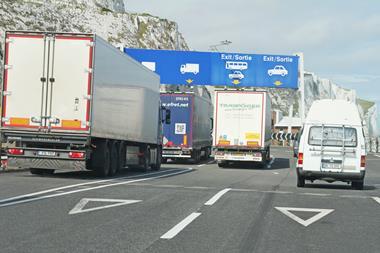
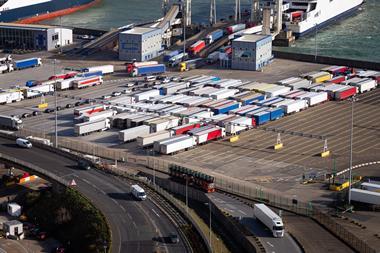
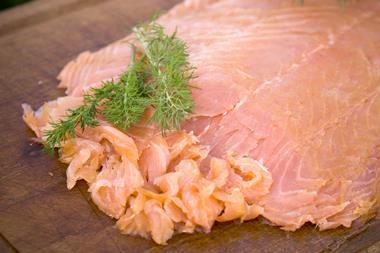
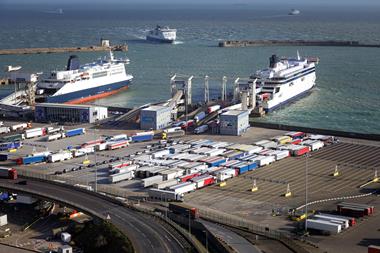
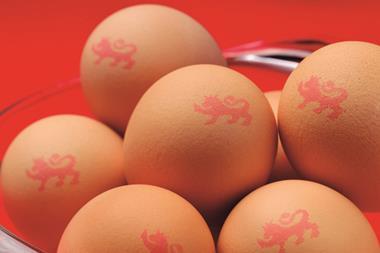







No comments yet